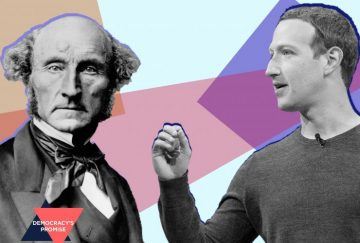 Over at the Boston Review, Henry Farrell and Bruce Schneier have the lead piece in a forum on the issue of information and democracy, with responses by Riana Pfefferkorn, Joseph Nye, Anna Grzymala-Busse, Allison Berke, Jason Healey, and Astra Taylor:
Over at the Boston Review, Henry Farrell and Bruce Schneier have the lead piece in a forum on the issue of information and democracy, with responses by Riana Pfefferkorn, Joseph Nye, Anna Grzymala-Busse, Allison Berke, Jason Healey, and Astra Taylor:
Today, we live in darker times. Authoritarians are using these same technologies to bolster their rule. Even worse, the Internet seems to be undermining democracy by allowing targeted disinformation, turning public debate into a petri dish for bots and propagandists, and spreading general despair. A new consensus is emerging that democracy is less a resilient political system than a free-fire zone in a broader information war.
This despairing, technologically determinist response is premature. The Arab Spring wasn’t the twilight of dictatorship, yes, but today isn’t the twilight of democracy, either. Still, we agree that to the extent democracy has revealed systemic weaknesses, we should be working overtime to repair them.
To pursue this project of repair, we need a better understanding of democracy’s resiliency in the face of information attacks. Building that understanding is harder than it might seem. Our theories have mostly assumed that democracies are better off when there is less control over information. The central assumption, which owes much to John Stuart Mill and Louis Brandeis, is that the answer to bad speech is more and better speech.
We need new frameworks to understand the limits of this optimistic view.
More here.
